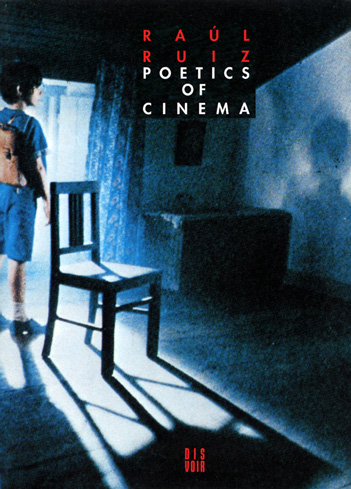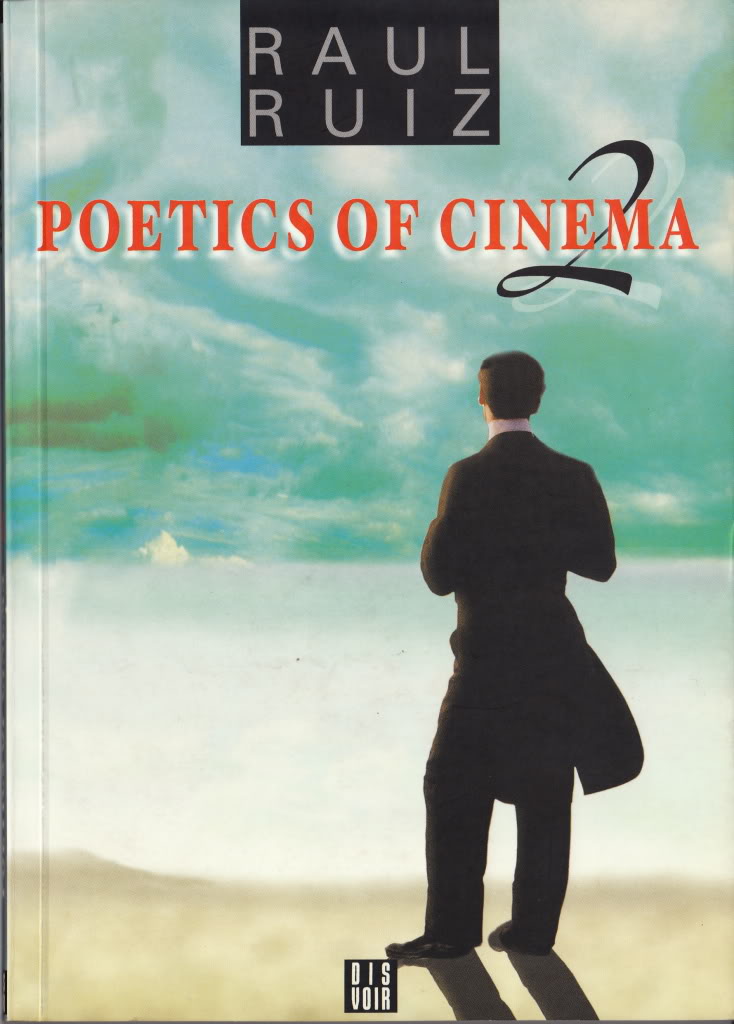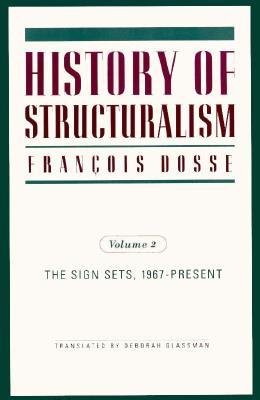Raúl Ruiz: Poetics of Cinema (1995–) [EN, ES]
Filed under book | Tags: · cinema, film, film theory, image, poetics, theory, unconscious


“Chilean filmmaker Raoul Ruiz is the author of some 100 feature-length films, along with numerous plays and multi-media installations. In Poetics of Cinema, Ruiz takes a fresh approach to the major themes haunting our audio-visual civilization: the filmic unconscious, questions of utopia, the inter-contamination of images, the art of the copy, the relations between artistic practices and institutions. Based on a series of lectures given at Duke University in North Carolina, Poetics of Cinema develops an acerbically witty critique of the reigning codes of cinematographic narration, principally derived from the dramatic theories set forth by Aristotle’s Poetics and characterized by Ruiz as the “central-conflict theory.” Ruiz’s knowledge of theology, philosophy, literature and the visual arts never outstrips his imagination. Poetics of Cinema not only offers a singularly pertinent analysis of the seventh art, but also shows us an entirely new way of writing and thinking about images.” (Source)
Translated by Brian Holmes (I) and Carlos Morreo (II)
Publisher Dis Voir, Paris, 1995 & 2007
ISBN 2906571385, 9782906571389 (I), & 2914563256, 9782914563253 (II)
124 & 111 pages
via depositio
Reviews: Michael Goddard (Senses of Cinema, 2004), Acquarello (2007).
Publisher (I), (II)
WorldCat (I), (II)
Poetics of Cinema, 1: Miscellanies (English, 1995; removed on 2015-7-15 upon request of the publisher)
Poetics of Cinema, 2 (English, 2007; removed on 2015-7-12 upon request of the publisher)
Poética del cine (Spanish, trans. Waldo Rojas, 2000, 9 MB)
For more by and about Ruiz see Film Studies For Free.
Comment (0)Technologies of the Self: A Seminar with Michel Foucault (1988)
Filed under book | Tags: · antiquity, christianity, ethics, philosophy, philosophy of technology, power, psychoanalysis, religion, self, subjectivity, technology, truth, unconscious

A collection of essays based on a faculty seminar conducted and organised by the University of Vermont in the autumn of 1982. Contains an interview with Foucault made in October 1982, his six seminar presentations, a public lecture entitled “The Political Technology of Individuals”, and five presentations by members of the seminar.
Foucault’s presentations provide a concise overview of the conceptual and methodological shift that guided his “turn to the Greeks” in The History of Sexuality and his later seminars.
Edited by Luther H. Martin, Huck Gutman, Patrick H. Hutton
Publisher University of Massachusetts Press, 1988
ISBN 0870235931, 9780870235931
166 pages
Review (Montanus C. Milanzi, Systems Research and Behavioral Science, 2001)
Comment (0)François Dosse: History of Structuralism, 2 vols. (1991–) [BR-PT, EN, ES]
Filed under book | Tags: · 1940s, 1950s, 1960s, 1970s, anthropology, history, language, linguistics, literary theory, marxism, philosophy, psychoanalysis, semiotics, sociology, structuralism, unconscious


“Claude Lévi-Strauss, Roland Barthes, Jacques Lacan, Louis Althusser, Jacques Derrida, and Michel Foucault—the ideas of this group of French intellectuals who propounded structuralism and poststructuralism have had a profound impact on disciplines ranging from literary theory to sociology, from anthropology to philosophy, from history to psychoanalysis. In this long-awaited translation, History of Structuralism examines the thinkers who made up the movement, providing a fascinating elucidation of a central aspect of postwar intellectual history.
François Dosse tells the story of structuralism from its beginnings in postwar Paris, a city dominated by the towering figure of Jean-Paul Sartre. The work of Saussure became the point of departure for a group of younger scholars, and the outcome was not only the doom of Sartre as intellectual leader but the birth of a movement that would come to reconfigure French intellectual life and would eventually reverberate throughout the Western world.
Dosse provides a readable, intelligible overall account, one that shows the interrelationship among the central currents of structuralism and situates them in context. Dosse illuminates the way developments in what are usually distinct fields came to exert such influence on each other, showing how the early structuralists paved the way for later developments and for recent discourses such as postmodernism. The cast of characters related by Dosse includes those mentioned above as well as Roman Jakobson, Julia Kristeva, Pierre Bourdieu, Gilles Deleuze, Félix Guattari, Tzvetan Todorov, and many others. Chapters are devoted to major figures, and Dosse has done extensive interviews with the major and minor figures of the movement, furnishing an intellectual history in which historical players look back at the period.
This first comprehensive history of the structuralist movement is an essential guide to a major moment in the development of twentieth-century thought, one that provides a cogent map to a dizzying array of personalities and their ideas. It will be compelling reading for those interested in philosophy, literary theory, sociology, anthropology, linguistics, and psychoanalysis.”
First published in French as Histoire du structuralisme, Éditions La Découverte, Paris, 1991, 1992
English edition
Translated by Deborah Glassman
Publisher University of Minnesota Press, 1997
ISBN 0816622418, 9780816622412 & 0816623716, 9780816623716
488 & 534 pages
Publisher (EN)
História do estruturalismo I (BR-Portuguese, trans. Álvaro Cabral, 1993, added on 2024-1-20)
História do estruturalismo II (BR-Portuguese, trans. Álvaro Cabral, 1994, added on 2024-1-20)
History of Structuralism, 1: The Rising Sign, 1945-1966 (English, trans. Deborah Glassman, 1997, via falsedeity)
History of Structuralism, 2: The Sign Sets, 1967-Present (English, trans. Deborah Glassman, 1997)
Historia del estructuralismo I (Spanish, trans. María del Mar Llinares, 2004)
Historia del estructuralismo II (Spanish, trans. María del Mar Llinares, 2004)

